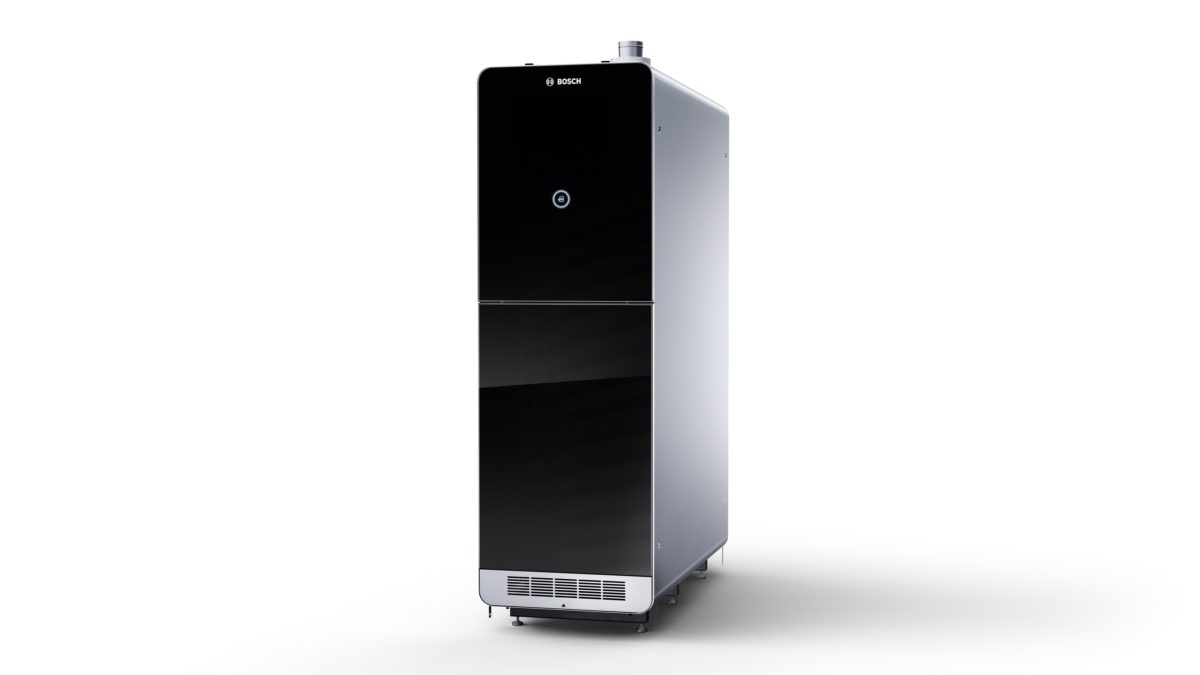Germany's Bosch has developed a solid oxide fuel cell (SOFC) system for commercial and industrial applications and is preparing a production ramp-up in 2024. The SOFC system can run on natural gas, biomethane, hydrogen or different blendings, with an electrical efficiency of more than 60% and an overall efficiency of more than 85%.
“Our SOFC system is primarily used to produce electrical energy but can also produce thermal energy at temperature levels that can be used for heating or cooling,” Marcus Spickermann, senior vice president of solid oxide fuel cells (SOFC) at Bosch, told pv magazine. “We are running several pilot projects at the moment, and we are preparing for the market entry in 2024, when we will start with an annual production volume of 200 MW per year.”
The current prototype machines have a target power output of 10 kW electricity supply. They also produce up to 3 kW of thermal energy.
“We are currently planning to increase the capacity of the system, as our plan is to offer the device mainly in the commercial and industrial segment,” Spickermann said.
The modular SOFC units can be combined to a cascade or cluster that forms a decentral energy supply system and are designed as connected devices that are part of the Internet of Things. In the future, it will be possible to connect SOFC clusters to virtual power plants that reach high power capacities in the megawatt range.
“When these machines are linked together, and the power grid fails, their resilience has a value that many investors may be happy to recognize,” Wayne-Daniel Kern, vice president of SOFC at Bosch, told pv magazine.
The fuel cell unit also produces thermal energy at temperature levels that can be used for heating or cooling.
“The heat coming out of the system has a temperature of around 200 Celsius degrees, an optimal level to reutilize it to heat buildings or reconvert it into cooling for use cases in data centers,” Kern said. “This heat can be an efficient add-on supply to a building's existing heat supply system. The machines are primarily intended at producing electricity, but making use of the heat supply helps reduce the costs of ownership.”
When commercial production is launched, the product may have a payback time of between five and six years, so by that time it will become very attractive, said Kern. Bosch aims to produce the fuel cell units on a large scale.
“We are not targeting a niche market, we are a mass manufacturing company,” Kern said. “We know how to industrialize and produce thousands of machines.”
In Germany, Bosch already operates around 50 SOFC pilot installations at its own sites in Bamberg, Homburg, Renningen, Salzgitter, Schwieberdingen, Stuttgart-Feuerbach, and Wernau. Its first pilots are running at customer locations such as Stadtwerke Bamberg. This SOFC unit supplies power to the surrounding area and the heat is used at a nearby bakery.
In preparation of the production ramp-up in 2024, further pilot projects will follow in order to prove the capabilities of the SOFC units. The company will develop a series of products that meet custome requirements in different use scenarios such as buildings, industrial applications, distributed energy supply systems (microgrids), and data centers.
This content is protected by copyright and may not be reused. If you want to cooperate with us and would like to reuse some of our content, please contact: editors@pv-magazine.com.




This technology seems to be at odds with the idea of PVs and renewable energy sources. How does this help with dependence on fossil fuels – of you have a solar array with equipment that generates hydrogen, I presume that can be used to power these SOFCs, but will that be a more economical system and so the overall efficiency be higher than a conventional solar array and battery storage system?
The problem with fossil fuel are the emissions.This unit converts natural gas to hydrogen then uses hydrogen to produce energy and the only byproduct is water.I think I am correct in this assumption.
I believe the benefits are energy density, and not having degradation of batteries. Large ships, for example, may be able to run on these where as batteries might be impractical.
The logistics of compressing the gas, storing, transporting, transferring are not trivial. I’ve also heard that fuel cells in general are sensitive to contamination and temperature. Eventually, though these details will get worked out, and these fuel cells will play a part in our future.
Replying to Sean: The carbon in the natural gas still comes through as CO2 in the exhaust from the system, even as the hydrogen is stripped off in the reformer prior to entry into the fuel cell stack. There is no carbon free ride. The efficiency though is quite high. So, in comparison to any other form of electrical generation from natural gas, less CO2 is emitted.
I am very much delightful to see these products innovated by Bosch. Like to know the details.